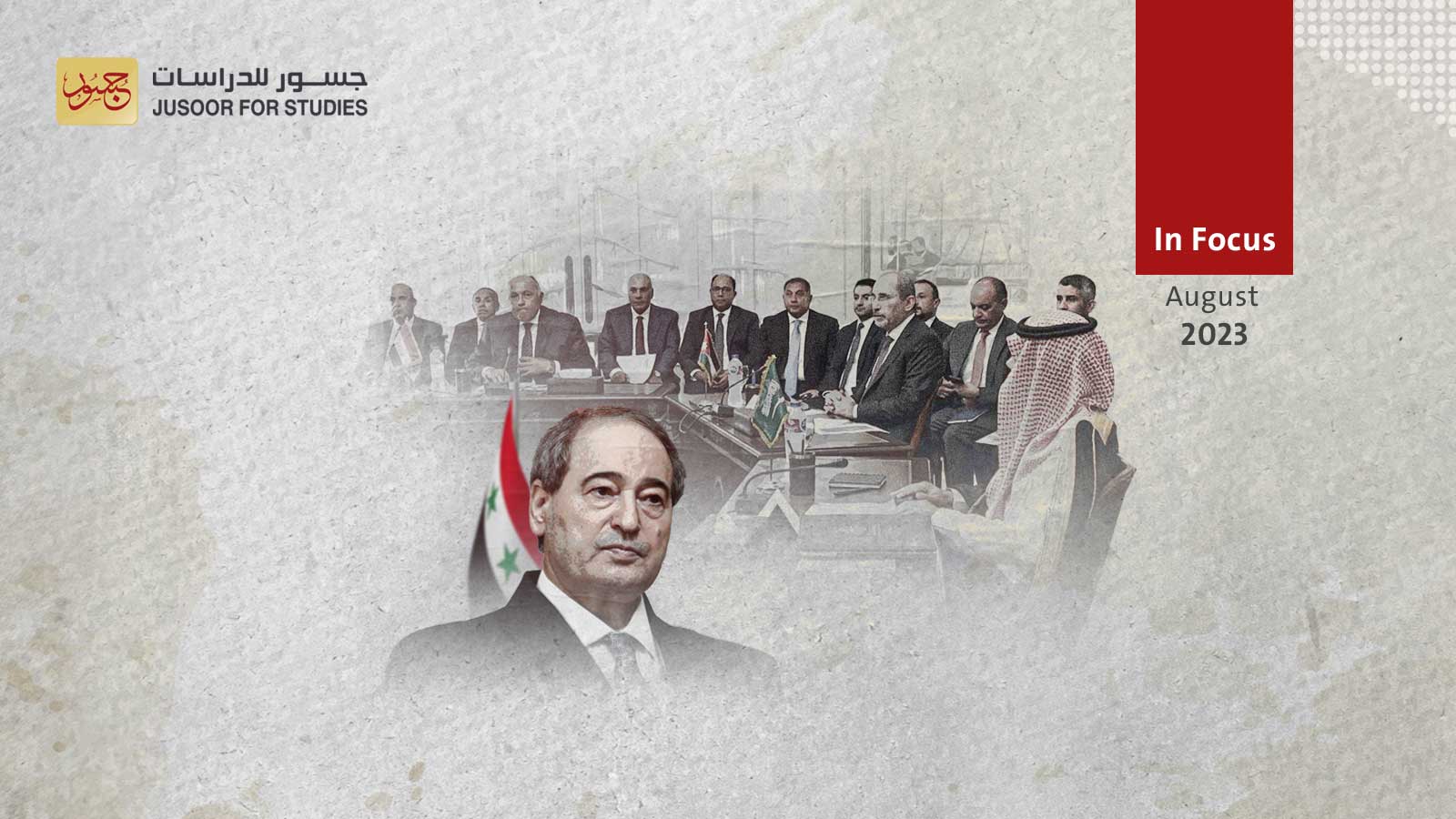Evading Commitment: The Syrian Regime's Diplomatic Maneuvers in Cairo's Spotlight
On August 15, 2023, Cairo became the focal point for Arab diplomatic discussions, hosting the inaugural meeting of the Arab Ministerial Liaison Committee.
This significant gathering saw the participation of Faisal Al-Miqdad, the Foreign Minister of the Syrian regime. This meeting was a precursor to the 160th regular session of the Arab League Council at the ministerial level slated for September. The concluding statement from this assembly largely echoed sentiments from the Amman declaration and resonated with the resolutions of the Arab League Council's summit, specifically decision number 822 dated May 19, 2023.
Notably absent from the statement, however, was any acknowledgment of tangible progress by the regime, suggesting a cautious, step-by-step approach.
In the wake of the Amman declaration on May 1, 2023, the Arab world witnessed the formation of the Arab Ministerial Liaison Committee. This strategic initiative, comprising influential members like Jordan, Saudi Arabia, Iraq, Lebanon, Egypt, and the Secretary-General of the Arab League, was conceived to ensure the diligent execution of the Amman declaration's resolutions. Recognizing the committee's pivotal role, the Arab League Council underscored the importance of sustained direct engagement with the Syrian regime. The overarching goal is to meticulously navigate the complexities of the Syrian crisis, addressing its multifaceted repercussions in a methodical, step-by-step approach. This strategy not only aligns with the tenets of UN Security Council Resolution 2254 (2015) but also mandates the committee to periodically update the Arab League on its deliberations and achievements.
At the heart of the Cairo discussions, the Syrian regime tabled an intriguing proposal to the Arab Ministerial Liaison Committee: the potential shift of the Constitutional Committee's deliberations to the Sultanate of Oman. While signaling its readiness to embrace Oman as the next venue, the regime underscored the imperative of garnering endorsements from both the United Nations and the Syrian opposition. The insistence of these two entities on Geneva as the established forum for such dialogues cannot be understated. The broader Western consensus, too, champions Geneva's continuity, interpreting any shift as a tacit concession to Russia. Such a move would be especially significant given the backdrop of Western sanctions on Russia, a consequence of its aggressive stance in the Ukraine conflict.
In their pursuit to bring the Amman declaration to fruition, the Arab Ministerial Liaison Committee advanced a series of innovative proposals to the Syrian regime. Yet, these proposals were presented without a clear timeline or concrete repercussions for potential breaches. At the Cairo dialogue, the regime's stance was conspicuously non-committal. It deftly skirted the responsibilities and pledges demanded during the pivotal Amman conference in early May. In a calculated move, the regime shifted the Liaison Committee's attention from pressing security matters to broader political discussions. This tactic is reminiscent of the regime's long-standing strategy, a philosophy once articulated by its former Foreign Minister, Walid al-Muallem, as "immersing in minutiae.
The regime's ostensible openness to an Arab-centric role within the Constitutional Committee's political framework appears more ceremonial than substantive. Historically, the regime's modus operandi in engaging with externally imposed solutions has been marked by a pattern of deliberate delays and an aversion to fixed timelines. This strategic procrastination has seen the Astana talks stretch over 20 rounds, the Geneva negotiations extend to 9 sessions, and the Constitutional Committee's discussions evolve through 8 rounds. Given this backdrop, one can
only speculate on the number of sessions the nascent Arab Ministerial Committee might require before any discernible progress is observed.
The curtains closed on the Cairo meeting, revealing an undercurrent of dissatisfaction among key Arab stakeholders, particularly Saudi Arabia and Jordan. Their concerns centered on the regime's perceived inertia in actualizing the Amman declaration and adhering to the Arab League's resolutions. This sentiment wasn't merely confined to closed-door discussions; it resonated strongly within the narratives of prominent Arab media channels. As the dynamics evolve, this brewing discontent might crystallize into formal positions, potentially coming to the fore either in anticipation of or during the imminent ministerial convening of the League Council next month.
The ramifications of the Cairo meeting present a strategic imperative for the Syrian opposition. They are now poised at a juncture where issuing a definitive statement becomes crucial, one that underscores their unwavering commitment to keeping the Constitutional Committee's dialogues anchored in Geneva, irrespective of alternative venues like the Sultanate of Oman. Concurrently, there's a pressing need to elicit a clear stance from the United Nations. Such delineated positions are essential to thwart the regime's potential maneuvers, especially as it might attempt to capitalize on the evolving Arab engagement in Syria, often characterized by its proclivity for stalling and obfuscation.








